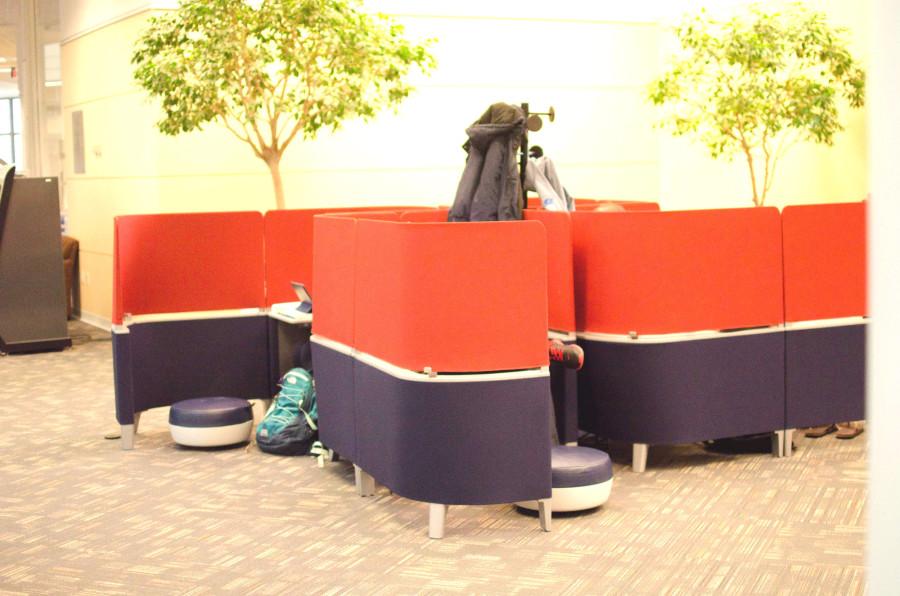KSL, campus need smarter study spaces
The Kelvin Smith Library (KSL) is undoubtedly the student hub for studying at Case Western Reserve University. However, even as it is a premier location to do work and study on campus, there is much room for improvement in terms of available study space.
Overcrowding and lack of particular spaces and workstations presents an issue for students who require certain studying needs.
In an effort to accommodate the studying needs of CWRU students, there are a couple of solutions that may address the need for more study space in KSL, as well as other places around campus.
A simple option is to invest in placing additional solo study spaces, colloquially known as study cubbies, in KSL and other locations. These workstations are a great work environment and are conducive to productivity. However there are very few of them, so trying to snag one is a difficult task. Needless to say, including more of these study cubbies would greatly benefit those in need of a quiet personal space and be a great contribution to overall CWRU facilities.
Another possibility is to increase the number of collaborative study rooms available in KSL and throughout the rest of campus. These workplaces function as great spots to do group projects or study with friends, but there are far too few of them to satisfy the demand for such spaces. With only 10 rooms available in KSL, more should be added as a means of encouraging collaborative work around campus and making them more accessible by placing them in multiple buildings for greater accessibility.
While any solution would certainly take an investment on the part of CWRU, it would be a great benefit for students. In terms of adding study more cubbies, this could be done relatively quickly and would only require identifying spaces for their placement. Creating more collaborative study rooms would take a little bit longer in terms of construction or renovation, but the same principle would apply in that it would be a positive impact for students.
With these few changes, not only would adding more study space and workstations free up resources in KSL, it would transform other parts of CWRU into hubs for studying as well.
It also tackles student studying from two different levels of independent and collaborative work that would work to positively impact the culture of study at CWRU.
Austin Stroud is a first-year student.


